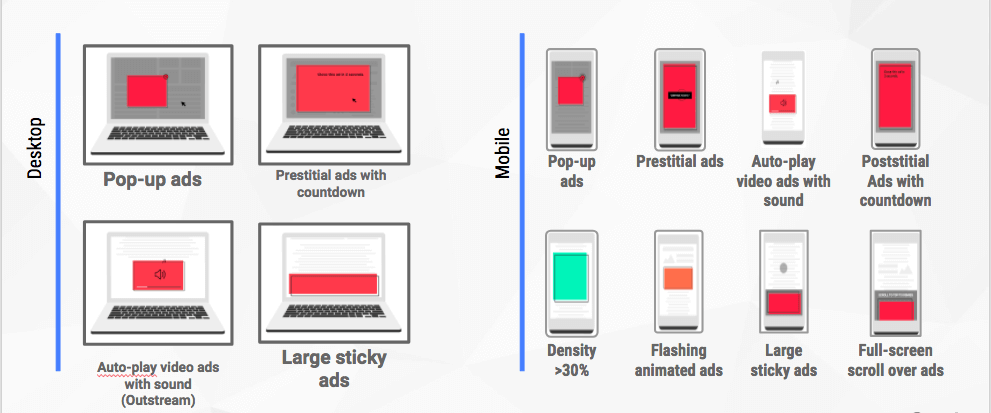Blocking advertisements is a popular practice when browsing the net, simply because websites have been abusing the system with intrusive pop-ups. Google in particular has had enough, having tested its own Chrome-based Adsense for over a month. Due to go live tomorrow, the company has detailed how it works and just what kind of advertisements it will block.
The influence for the big change comes from a survey completed by the Coalition for Better Ads. The study housed 40,000 participants across Europe and North America, with the majority considering full page advertisements that block content and flashing animated ads to be the most annoying of the lot.
While Adsense will only be blocking 4 kinds of these ads on desktop, the majority of users will likely still make use of third-party plug-ins for the remainder. Mobile users have a much harder time considering there isn’t much of a workaround, however Google will lending a helping hand by blocking 8 types of ads on handheld devices.
Adsense works similar to that of third-party plugins, in that the URL is checked against a list of sites that fail the Better Ads Standards. If the site is flagged, it is then scanned, checking patterns associated with ad placement against scripts and images. These patterns rules set by EasyList, original designed for Adblock.
Luckily, it seems that most sites seem to have gotten the word as Google has reported that 42 percent of sites that originally violated its new standards have adjusted and dropped the intrusive practices. Those that have yet to change won’t be banned, but they will not see any profit come through as the ads won’t even reach the user base.
KitGuru Says: For anyone switching over to Google's built-in adblock over third-party variants, this will likely have a positive effect on the legitimate and courteous websites frequently visited too. Removing manual management of a whitelist would mean that visitors would always be supportive of the content produced.
 KitGuru KitGuru.net – Tech News | Hardware News | Hardware Reviews | IOS | Mobile | Gaming | Graphics Cards
KitGuru KitGuru.net – Tech News | Hardware News | Hardware Reviews | IOS | Mobile | Gaming | Graphics Cards



